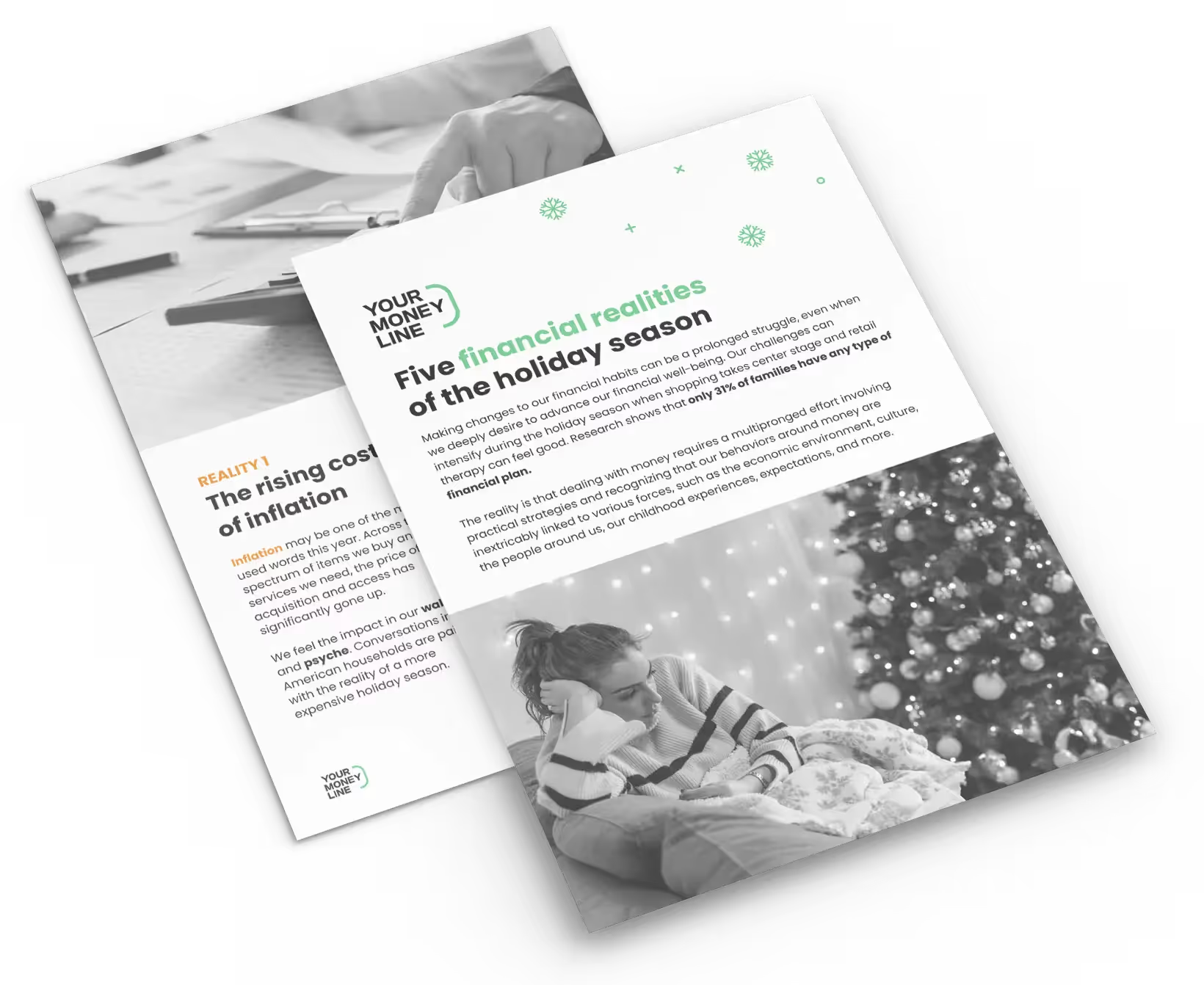Making changes to our financial habits can be a prolonged struggle, even when we deeply desire to advance our financial well-being. Our challenges can intensify during the holiday season when shopping takes center stage and retail therapy can feel good. Research shows that only 31% of families have any type of financial plan.
The reality is that dealing with money requires a multipronged effort involving practical strategies and recognizing that our behaviors around money are inextricably linked to various forces, such as the economic environment, culture, the people around us, our childhood experiences, expectations, and more.
Reality 1 — The rising costs of inflation
Inflation may be one of the most used words this year. Across the spectrum of items we buy and services we need, the price of acquisition and access has significantly gone up.
“My colleagues and I are acutely aware that high inflation is imposing significant hardship, straining budgets, and shrinking what paychecks will buy." — Jerome Powell, Chair of the Federal Reserve Board
We feel the impact in our wallets and psyche. Conversations in American households are pained with the reality of a more expensive holiday season.
Reality 2 — Credit debt is at an all-time high
Credit card debt has reached historically high levels again. Debt spending is filling the gaps between the essentials we need, what we believe we could spend, and the expectations we (and others) have set for ourselves.
“Money anxiety is a constant companion for many people, a voice in the back of their minds that whispers about bills, debts, and financial insecurity.” — Jean Chatsky
Reality 3 — Mounting financial stress
Financial stress research shows that 60% of people feel anxious when thinking about their personal financial situation.
The mismatch between our resources and financial plans for the holiday season can exacerbate financial stress.
“People who are stressed are very short-term focused. They don’t plan for the future. If you can reduce stress, you can increase planning.” — Dr. Sonya Lutter
Reality 4 — Feelings of shame
Experiencing shame about our overall financial situation can mean that the holiday season is not joyous for everyone.
The compounding impact of being financially stretched and having limited or stagnant resources, coupled with the mental and emotional overload of living in this seemingly perpetual state, can create feelings of shame and unworthiness. As holiday expectations, obligations, spending, and debts increase, so can shame.
“To struggle financially is a source of shame, and daily humiliation. Silence is the only protection.” — Neal Gaber
Shame can confine us to inaction, avoidance, and prolonged financial hardship. This cycle can last years.
Reality 5 — Cultural impact
Culture impacts how we see the world around us and behave.
Our shared cultural beliefs and traditions are the lens through which we interpret the world, form parts of our identities, and shape our behavior - each holiday season.
“...culture implies social forces - both subtle and overt - that govern the beliefs and behaviors of everyday life.” — Dr. Marcus Collins, For the Culture
If our greater societal culture highly promotes shopping and gift-giving during the holidays, it’s a powerful force to collide with. Culture lays the foundation for our behavior, values, and actions.
Taking all of this into consideration, as we approach the holidays, we recommend:
- Have a thinking partner who will not judge your financial situation or dictate what you should do. Your confidant will guide, support, and encourage you.
- Build a better spending plan over time to be able to experience joy and delight each Holiday season.
- Buildup the whole you - you are more than your bank account.
- Limit comparison, it ruins everything, especially around the holidays.
- Manage expectations and brainstorm alternatives to combat being financially stretched.
- Invest in yourself by improving your financial acumen and skills.
- Take tiny steps towards the better version of yourself.
- Everyone deserves to have a financial plan and a safe place to discuss their money circumstances.






